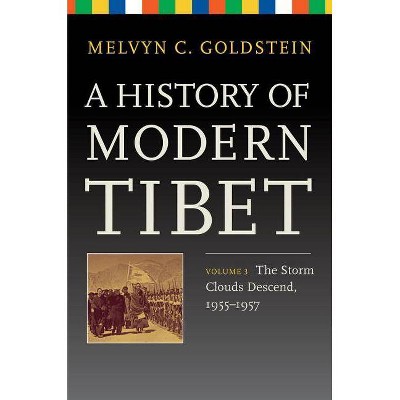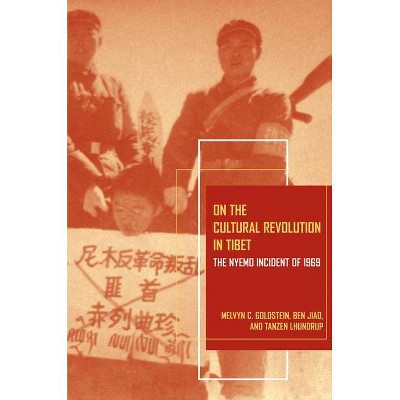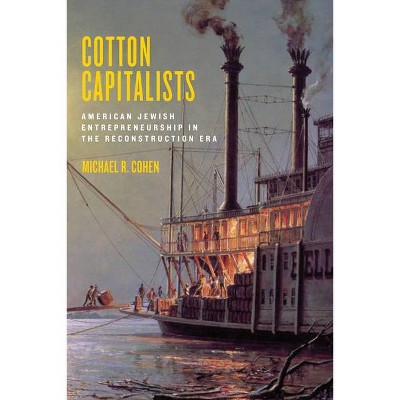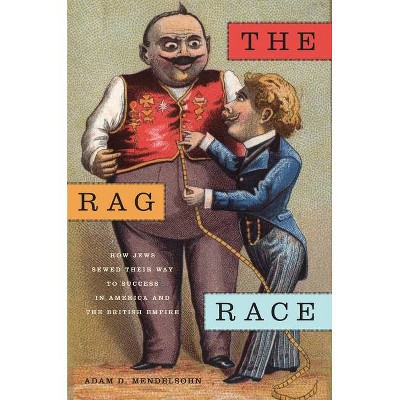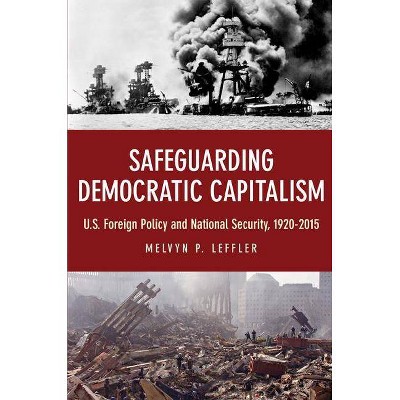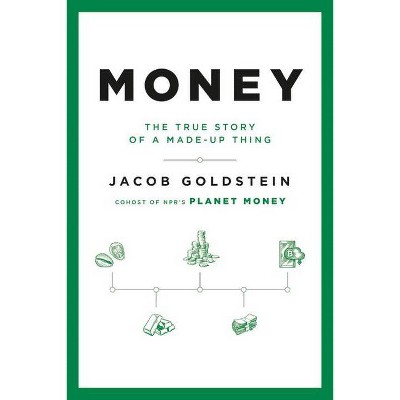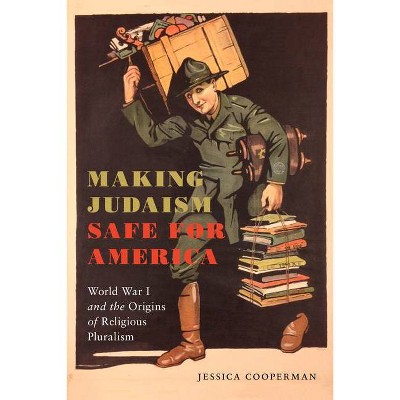A History of Modern Tibet, Volume 4 - by Melvyn C Goldstein (Hardcover)
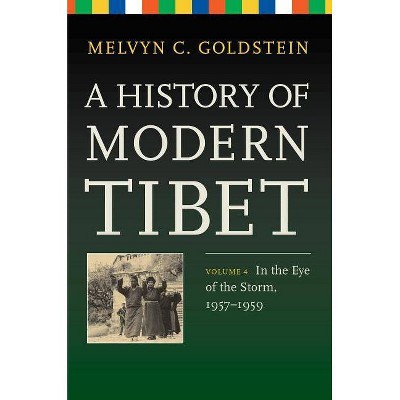
Similar Products
Products of same category from the store
AllProduct info
<p/><br></br><p><b> About the Book </b></p></br></br>"It is not possible to understand contemporary politics between China and the Dalai Lama without understanding what happened in the 1950s, especially the events that occurred in 1957-59, which is the subject of the fourth and final volume of Melvyn C. Goldstein's quartet on the History of Modern Tibet. Volume 4 provides new perspectives on Sino-Tibetan history during the period leading to the Tibetan Uprising of 1959, and reassesses important issues and stereotypes that have been widely misunderstood or misrepresented in both the popular realm and the academic literature (such as Mao's policies on Tibet). Volume 4 draws on important new Chinese government documents, published and unpublished memoirs, new biographies, and a large corpus of in-depth political interviews collected specially for this history series to reexamine and reevaluate the events that produced the March 10th uprising and the demise of Tibet's famous Buddhist civilization. The result is a heavily documented analysis that presents a nuanced and balanced account of the principal players and their policies during the critical final two years of Sino-Tibetan relations under the 17-Point Agreement of 1951"--Provided by publisher.<p/><br></br><p><b> Book Synopsis </b></p></br></br>It is not possible to understand contemporary politics between China and the Dalai Lama without understanding what happened in the 1950s, especially the events that occurred in 1957-59. The fourth volume of Melvyn C. Goldstein's History of Modern Tibet series, <i>In the Eye of the Storm</i>, provides new perspectives on Sino-Tibetan history during the period leading to the Tibetan Uprising of 1959. The volume also reassesses issues that have been widely misunderstood as well as stereotypes and misrepresentations in the popular realm and in academic literature (such as in Mao's policies on Tibet). Volume 4 draws on important new Chinese government documents, published and unpublished memoirs, new biographies, and a large corpus of in-depth, specially collected political interviews to reexamine the events that produced the March 10th uprising and the demise of Tibet's famous Buddhist civilization. The result is a heavily documented analysis that presents a nuanced and balanced account of the principal players and their policies during the critical final two years of Sino-Tibetan relations under the Seventeen-Point Agreement of 1951.<p/><br></br><p><b> From the Back Cover </b></p></br></br>"On one hand, this volume is the culmination of Melvyn C. Goldstein's forty-year effort to tell the story of Tibet's half-century of autonomy, and on the other, it is a freestanding account of that story's most dramatic and tragic moment. In the end, Goldstein presents foundational scholarship on a crucial moment in Sino-Tibetan history, one that is essential to understand contemporary politics between China and the Dalai Lama."--Brantly Womack, C. K. Yen Professor of Foreign Affairs, University of Virginia <br> "<i>A History of Modern Tibet, Volume 4</i> is a careful and detailed examination of the political history of central Tibet during the two years preceding the uprising in Lhasa on March 10, 1959. Goldstein conveys a wealth of new insights based on his extensive analysis of Tibetan, Chinese, and English written and oral sources. This important and accessible volume fills a lacuna in the field of modern Tibetan history, and it is essential reading for anyone--specialist and nonspecialist--who is interested in the complex history of modern Tibet."--Dása Pejchar Mortensen, Visiting Assistant Professor of History, Davidson College <br> "In this fourth volume of Melvyn Goldstein's magisterial history of twentieth-century Tibet, Goldstein challenges the myths associated with the 1959 rebellion in Tibet and provides an objective view of the involvement of monks, the CIA, and the Chinese Communists in strong contrast to the biases and propaganda that have enveloped this history."--Morris Rossabi, author of <i>Modern Mongolia</i><p/><br></br><p><b> Review Quotes </b></p></br></br><br>"Prodigious precision. . . . It shows the complexity of relations within the Tibetan administration, between the latter and the Chinese administration in Lhasa, and within the Chinese intelligentsia in Tibet itself."-- "Journal of Chinese Studies"<br><p/><br></br><p><b> About the Author </b></p></br></br><b>Melvyn C. Goldstein</b> is John Reynolds Harkness Professor of Anthropology and Codirector of the Center for Research on Tibet at Case Western Reserve University, and a member of the National Academy of Sciences. He is the author of many books on Tibet, including <i>A Tibetan Revolutionary: The Political Life and Times of Bapa Phüntso Wangye </i>(with Dawei Sherap and William R. Siebenschuh), <i>Essentials of Modern Literary Tibetan: A Reading Course and Reference Grammar, </i>and volumes 1-3 of<i> A History of Modern Tibet, </i>all published by UC Press. <p/>
Price History
Price Archive shows prices from various stores, lets you see history and find the cheapest. There is no actual sale on the website. For all support, inquiry and suggestion messagescommunication@pricearchive.us
